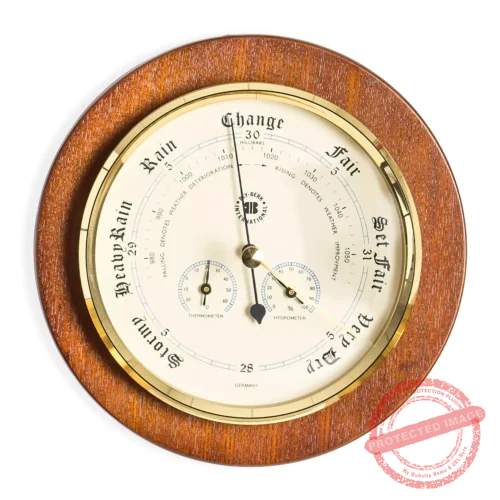As any experienced angler will tell you, a successful fishing trip depends on various factors. Including the type of fish you’re targeting, the time of day, and the weather conditions. One weather factor that can have a significant impact on fishing is barometric pressure. In this article, we’ll explore what barometric pressure is. How it affects fishing and what anglers can do to take advantage of these effects.

What is Barometric Pressure
First, let’s define what barometric pressure is. Also known as atmospheric pressure. Barometric pressure is the force exerted by the weight of the Earth’s atmosphere on a given area. This pressure can be influenced by various factors, including temperature, humidity, and the movement of weather systems.
So, how does barometric pressure affect fishing? The short answer is that it can have a significant impact on the behavior of fish. When the barometric pressure is high, fish tend to be more lethargic and less likely to feed. On the other hand, when the barometric pressure is low. Fish tend to be more active and more likely to feed.
How Does Barometric Pressure Affect Fish?
The reason for this has to do with the swim bladder. An organ that fish use to control their buoyancy in the water. When the barometric pressure is high, the swim bladder can become compressed. Causing discomfort for the fish and making it more difficult for them to move around. As a result, fish may be less likely to feed and more likely to seek shelter in deeper water.
Conversely, when the barometric pressure is low. The swim bladder can expand, making it easier for fish to move around and feed. This is why many anglers believe fishing is best during periods of low barometric pressure. Such as just before a storm.
Of course, the effects of barometric pressure on fishing can vary depending on the type of fish you’re targeting. Some fish, such as catfish and bass, tend to be less affected by changes in barometric pressure. Other species, such as trout and salmon, may be more sensitive to changes in pressure. As a result, may require more specific conditions in order to be caught successfully.
So, what can anglers do to take advantage of these effects? One strategy is to pay attention to the barometric pressure and plan your fishing trips accordingly. If you know that the pressure is going to be low, plan to fish during those periods. If the pressure is high, consider fishing in deeper water or using lures that mimic injured prey. Which can entice lethargic fish to strike.
Tips for Fishing
Another strategy is to experiment with different baits and lures. You will find what works best under different barometric conditions. Some anglers swear by specific lures, such as spinnerbaits or topwater plugs, during periods of low pressure. While others may have better luck with soft plastics or live bait.
Learning what lures to use is a big part of fishing. Different lures work in various situations. Besides pressure, time of year and temperature play an influence. Plus, the lures need to be used correctly. The following are a few factors to consider when fishing.
Conclusion
Ultimately, the effects of barometric pressure on fishing can be complex and unpredictable. However, by paying attention to the pressure and experimenting with different strategies and techniques. Anglers can increase their chances of a successful day on the water.